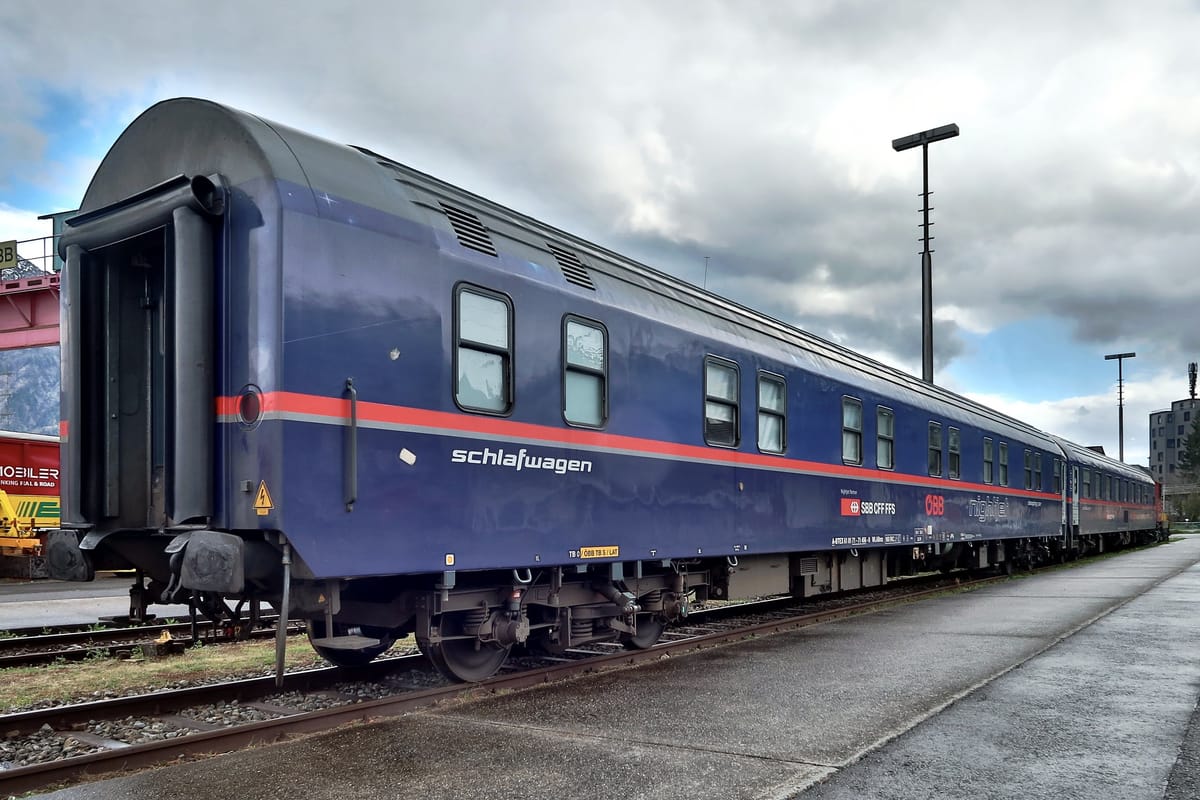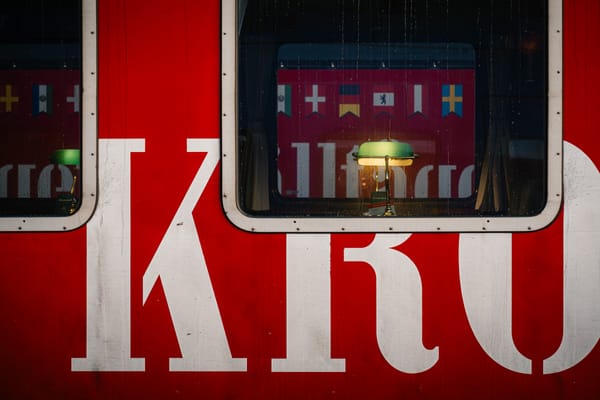Swiss night trains: that's how common problems are
Unfortunately, cancellations or downgrades happen frequently on night trains from or to Switzerland. Here you can see for the first time which connections are most affected.

Note: This blog entry was reposted from night-ride.ch, the predecessor website of nightride.com.
«Due to a change in vehicle deployment, a couchette coach must be used for this train instead of the sleeper coach 161. Passengers with a reservation are kindly asked to contact the train team or the SBB Contact Centre.»
Regular night train users have probably encountered this or a similar message at least once and have learned to fear it. The booked sleeper coach is cancelled «due to a change in vehicle deployment (sic)» and, in the best-case scenario, replaced by a couchette coach. The latter is known in the jargon as a «downgrade.»
I have personally experienced this several times on the Zurich <> Amsterdam route. The air conditioning breaks down, the heating doesn't work or something else is broken - the coaches on this route at getting older and older and defects are commonplace.
For the first time, I have analysed how Swiss night train connections struggle with cancellations and downgrades. The night trains to and from Switzerland are all provided by the Austrian Federal Railways (ÖBB) and operated in cooperation with SBB.
SBB communicates any problems via its app and website. I have collected all these reports since the beginning of the year and can now analyse them from January to May (five months). You can find the methodological details at the end of this blog post.
«Problem train» to Amsterdam: lone frontrunner
The data clearly shows that the connections from Zurich to Amsterdam via Basel (NJ 402) and even more so the return journey (NJ 403) are by far the most affected. The NJ 403 experienced problems on almost 100 days in the period under review - that's around two-thirds of all journeys! On the NJ 402, the problems occurred a bit less frequently.
The Nightjets 467 and 465 to Vienna and Graz and the NJ 470 and 471 to Hamburg and back form the midfield of the «breakdown trains». On this connection, it is mainly downgrades that occur; complete cancellations are far less frequent. This suggests that the rolling stock on the route to the capital of the Netherlands, which will not open until 2022, is a particular problem area, as the operators have already admitted several times.
SBB has repeatedly stated that they are «unsatisfied» with the situation. The analysis by night-ride.ch shows that the situation has persisted for over two years. The Swiss television programme «Kassensturz» used my findings for today's edition. The programme confronted SBB with the findings.
Not all passengers are affected to the same degree
When asked about the many cancellations, particularly on the connection to Amsterdam, SBB once again emphasises that it is not unsatisfied with the situation and is looking for solutions.
At the same time, the SBB puts the figures into perspective by saying that not every cancellation has the same impact on passengers. For example, of the 70 sleeping car cancellations of the NJ 403, only 21 occurred at short notice. The remaining 49 were «planned’ for capacity reasons and, in some cases, were announced days or weeks in advance. The affected travellers had been rebooked into other sleeper or couchette coaches.
Several media reports about the problembs have been published over the last two years. Last summer, experts published a detailed analysis of the cancellations in the Austrian newspaper Standard. This may have improved since the new Nightjet trains were introduced.
By the way, I have outlined in this blog post how you can react in the event of a cancellation or downgrade and how you can get your money back.
Is the end in sight?
But at least there is a glimmer of hope on the horizon, at least according to the number of incident reports, which has gradually decreased since February:
In May, the share of sleeper cancellations compared to the total number of problems was significantly smaller. There were nine more reports; only a small proportion occurred on the Zurich <> Amsterdam connection. Travelling on this line in mid-May, I was surprised to find not modern, but at least different coaches (still equipped with information stickers from the Swedish railway SJ - a loan in times of crisis?)
It should not go unmentioned that there are also night trains on which there are apparently never any problems: for example, I have not found a single incident report for the EN 40414 from Ljubljana or Zagreb to Zurich, which is operated jointly with the Croatian railway.
Find a night train to Ljubljana, Zagreb and Zurich
The methodology used
This is how I proceeded: At least once a day, I automatically checked all the routes mentioned above for incident reports and downloaded them if available. I then classified the reports according to the type of compartment affected, the replacement compartment (in the event of a downgrade) and the solution described. Finally, I kept all the messages with a cancellation or downgrade without a solution.
What do I mean by solution? According to SBB, there is a specific type of message with a cancellation but travellers are not affected. These sound like this: ‘Due to a change in vehicle deployment, the sleeper coach number 161 is missing from this train. A rebooking has been made for the seats booked in this coach. The train team will inform you of your new coach and seat number.»
In contrast to the situation described in the message at the beginning, where travellers are left to their fate, a «rebooking» has been made here. According to SBB, an equivalent replacement is offered if the sleeper coach is cancelled. I have therefore removed these cases from the analysis.
In the event of a downgrade (e.g. «[...] a seating carriage must be used for this train instead of the sleeper coach number 308. A rebooking has been made for the places booked in this coach.»), the rebooking does not really help either, in which case the name «downgrade» says it all, as SBB has also confirmed. I am therefore including these cases.
In some cases, passengers also have to change to another train heading for the same destination («Due to a change in vehicle deployment, the sleeper coach number 374 is missing from this train. Sleeper coach 374 is travelling on Nightjet 459, departing at 19:59 from Zurich main station via Leipzig to Prague. Passengers with destination Prague and reservations for sleeper coach 374 are travelling on Nightjet 459 due to unscheduled maintenance work.»). I have not taken these cases into account either.
If there were several problems of the same kind per day and route (for example, NJ 402 between Zurich and Amsterdam runs two train sections, each with several sleeper and couchette coaches, which theoretically means that two sleeper coaches could also be cancelled), I only counted them once.
Finally, it is also possible that a problem is not communicated in advance and the surprise awaits you on the platform (I have experienced this myself!). Those incidents are naturally missing from the data.
Nevertheless, I believe that this analysis provides a realistic and fair picture of the current «problem areas» of the Swiss night train service. If you want to take a closer look at the incident reports and my classification, you can download the data here and analyse it yourself.



